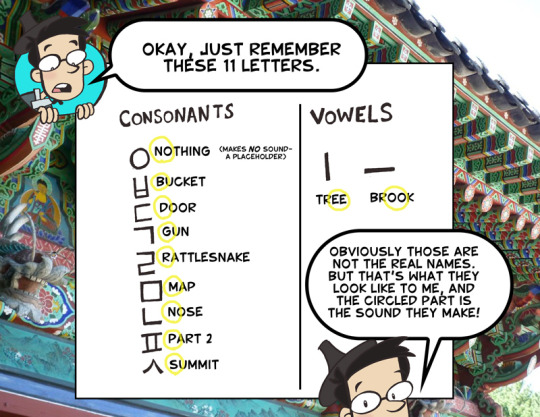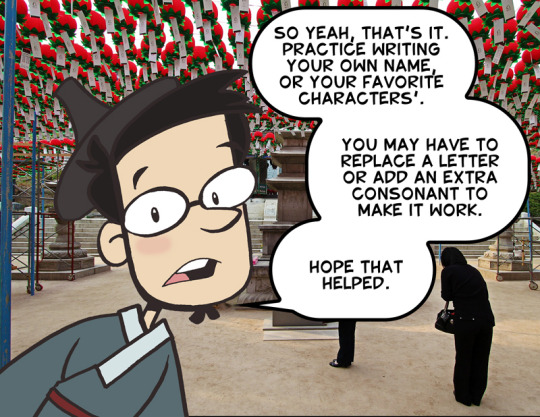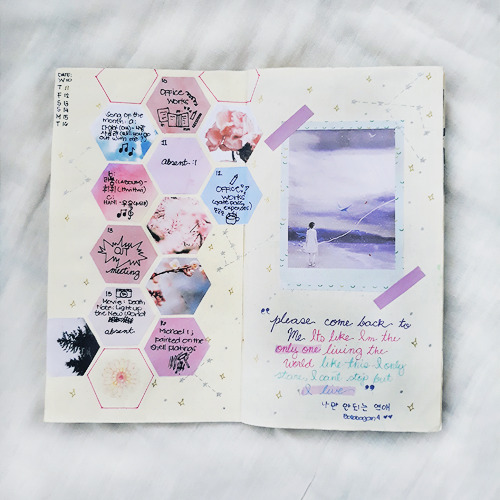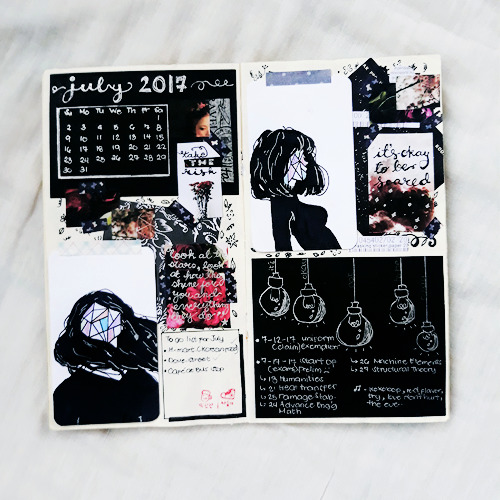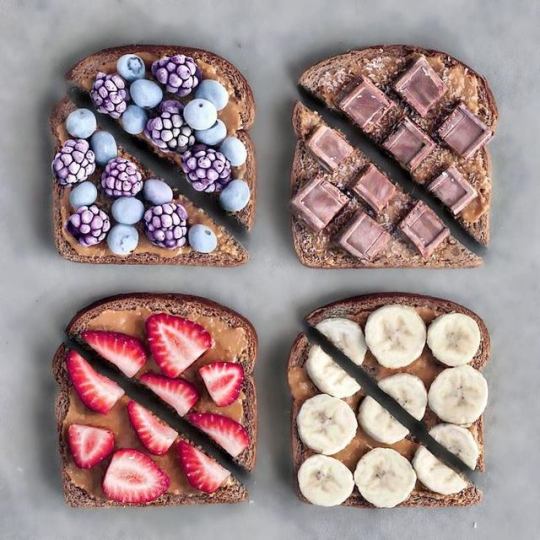Photo

✨ more journal pics on my ig : dearwritten ✨
9K notes
·
View notes
Text
once you stop fantasizing about that ideal version of yourself and start working towards becoming that person by setting your alarm clock earlier and actually going to the gym and actually volunteering at places and actually eating healthier and not procrastinating and working just a little bit harder you’ll realize that it was so easy all along. becoming your ideal self will only ever exist in your mind until you make the decision to work towards becoming that person. get up!! get going!! it’s now or never!! there is no light at the end of the tunnel!! get that flashlight and pave your own path bitch bc no one else is going to do it for u!!
259K notes
·
View notes
Photo


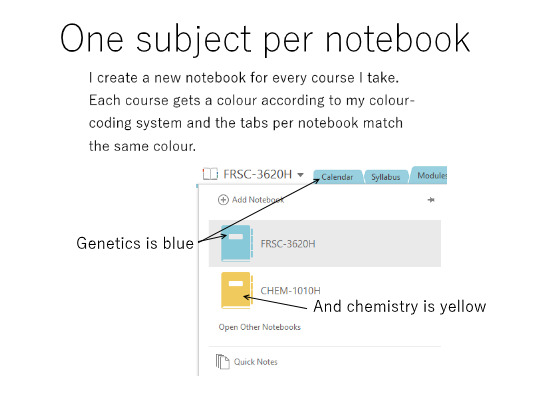
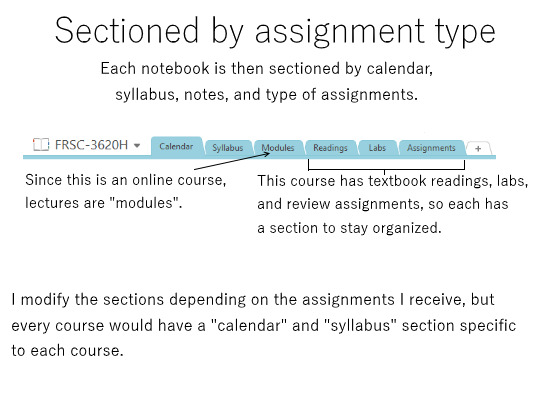
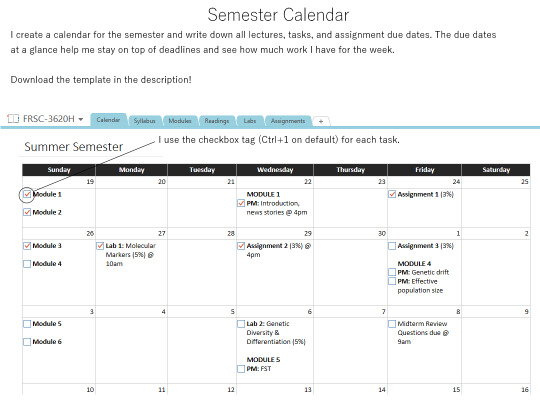

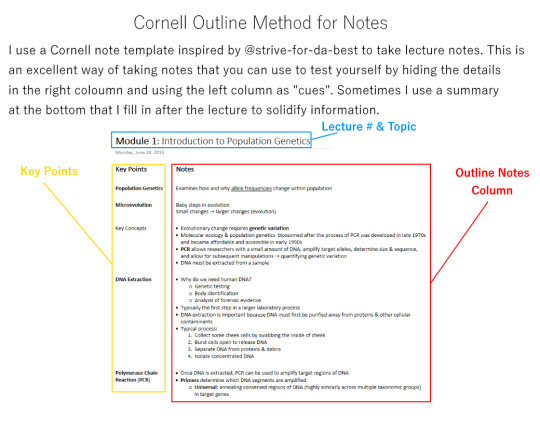
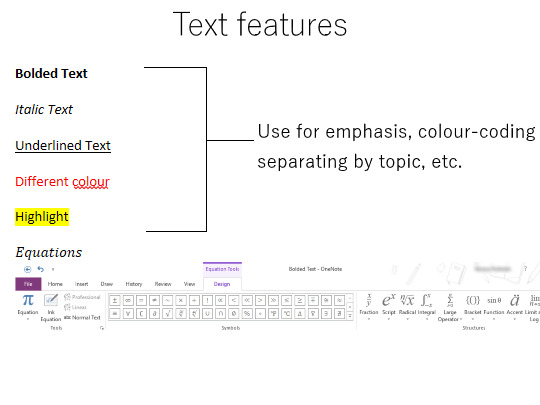
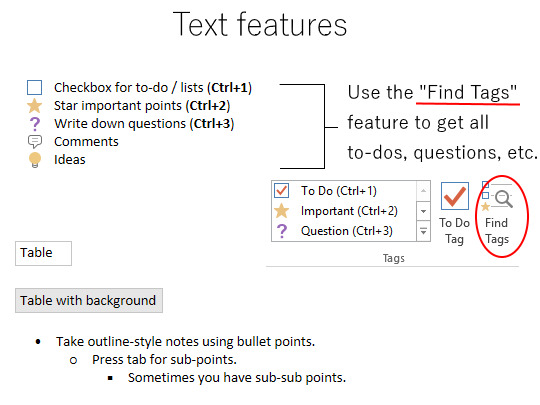
How I Use OneNote for University
Hey, all! I thought I’d share how I use OneNote, for any students who might want to use it for school organization. I have used this since the beginning of my university career and have found a method that works for me, after nearly three years.
I provide templates for what I use as .one files that can be imported into OneNote, and you’re free to use & modify them however you wish.
Semester Calendar Template: Download
Customized Syllabus Template: Download
Cornell Outline Template: Download + Outline inspired by How to Use Cornell Cornell Note-Taking Method on OneNote by @strive-for-da-best
+ How to insert templates + read if you’re on a Mac
As a student with learning disabilities, I found that using a computer, rather than writing everything out, is the best method for me to learn. I type up notes in class so as to not worry about keeping up with a professor, handwriting, or neatness. OneNote is my favourite note-taking application for this, because it’s essentially an upgraded version of Word that’s free and syncs automatically across devices. When my computer crashed, I was still able to access my notes online.
OneNote isn’t all typing. You can use it on a tablet or use a drawing tablet, in my case, to handwrite notes for a more natural feel. A very efficient way of taking notes is to import the lectures slides in OneNote and to write directly on them. I found that very useful in math-heavy courses, such as statistics and chemistry. The equation tool, while nifty, isn’t efficient.
By no means whatsoever is this the only way to use OneNote! In fact, I’d recommend you find a way that works for you, because while this may be highly organized, it takes a bit of set-up time and is tailored specifically to my needs. You can use my example as inspiration, but play around with it! The beauty of OneNote is that it can be used in a variety of different ways.
Download OneNote for Windows | Download OneNote for Mac
45K notes
·
View notes
Link
0 notes
Photo
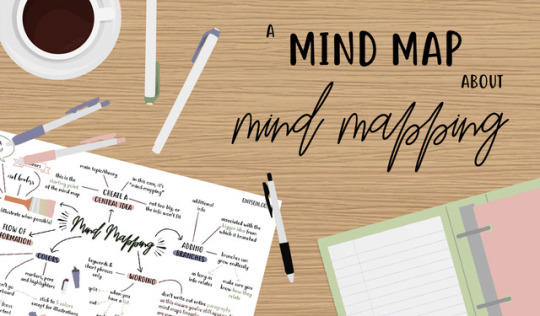

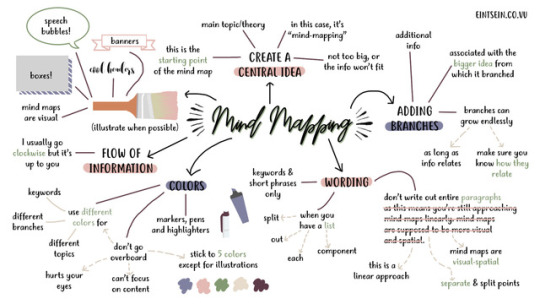
A MIND MAP ABOUT MIND-MAPPING
If you know me, you’d know that I am a highly visual person. I love learning from images and layouts, and my spatial intelligence is probably my strongest type of intelligence. Because of this, I often use mind maps to study, and so do a lot of other people. However, there are people who don’t really know how to make and utilize a mind map effectively. That’s what this post is for! Here’s how you can make your mind maps more effective and thus enable you to retain more information. (P.S. you might wanna zoom in)
By no means am I an expert in mind-mapping; these are just some habits I have when making a mind map that successfully does its job of helping me remember the topics I’m studying.
If you have any questions, feel free to drop an ask!
xx jo
20K notes
·
View notes
Photo

Disclaimer: As always, this is a guide on how I like to study maths and how I did well in final exams- but of course doesn’t work for everyone! These are only suggestions. ´・ᴗ・`
Mindset- A lot of people dislike maths and a big reason (from experience) is that people believe that it is too hard/ don’t understand. The great thing with maths that is different to subjective classes like English- if you know all of your concepts and formulae, you WILL do well. Your mind will help you pull through. Maths in honestly not that difficult. Everything that is hard is really just the concepts you know, in a more creative way.
The Mistake Palm card- Any silly errors you make- put down onto a palm card in terms of topic. For example, on my “Sketching graphs” topic, a mistake I make is not marking the point of inflexion. Things like not forgetting to mark your axes, label a point etc. go here.
The Mistake Word document- your mistakes from practice tests, exams at school and questions you don’t know how to solve initially all go on this. Scan/ take a photo and dump it into Word. This is for you to go over a few months later (or before your test) to make sure you know how to do the question! Mine ended up being 20+ for my HSC exam and it definitely helped!
Formulae Palm card- Same as the mistakes palm card, just dump all your formulae and you can carry it around in your pocket to read on the train or wherever you go.
Practice!- Practice papers are the most important thing. Exercises from your textbook are great, but you have to do past papers more so. This is to get familiar with format, tricky questions that could be asked and how fast you can do one.
Study depth, not breadth- Doing question after question from the textbook is not smart studying. A lot of those questions are the same thing but with different numbers so you’re not really giving yourself benefit of different formats. A lot of people saying they “study a lot” when they do this but you have to expose yourself to different kinds of questions. Know when to skip questions if you get the concept and to repeat if you don’t understand.
Timed Conditions- Practice papers under timed conditions are great at home. Aim to do the whole paper in 80-90% of the time to make sure you have time to check in tests! However in Australia, the HSC exam is 3 hours for mathematics when it only takes 1- 1.5 hours to complete- if you’re at home and you finish checking before time is up- just mark it. You’re wasting time by waiting for 3 hours when you could do two more tests in that time.
Don’t Repeat Papers- Don’t repeat papers! Repeat the questions you got wrong. This is because you’ve seen the questions before, and you know what to do. Try to find more practice papers on the internet instead.
I hope this helped anyone who does Mathematics- this probably works best with HSC since I don’t really know how overseas exams work. Thank you!!
Jade
xx
4K notes
·
View notes
Text
those different essays that keep popping up tips
the “why you wanna come here” essay
mention a department you really like, a professor you really like, a lab you really like, a program you really like
sometimes aspects of the school like an extensive research program, an internship program, an interesting major, a school philosophy will stand out (for instance, one school i applied to prided itself on balancing the humanities with STEM, which was a big focus in my essay)
talk about your experience when you visited or how you heard about the school and all the good things
any articles you read on it will help, basically just research a lot, talk about your interview (if applicable), talk about their programs and unique points
it wouldn’t be a bad idea to talk about your interests (briefly) and why that school is uniquely good for you
the “what do you want to study” essay
again, mention a field, or if undecided, then talk about diverse interests
if you have a specific field, talk about your experiences (like for engineering, i talked about robotics and my internship and how that shaped my career path)
overcoming challenges, discovering new interests, creating connections with others, and becoming a leader are all good things to mention here if possible
if you don’t know what to study, thats totally ok, but talk about your different interests, maybe how you plan to proceed with finding a specific course of study, or talk about a program you’re interested in at the school
the “challenge” essay
this essay is a challenge
you really gotta come up with something pretty good or at least try to; try to find something that involves being a leader and taking action/responsibility or maybe going out of your comfort zone.
tell it like a story!! talk about the problem then how you resolved it (ideally it should be a challenge you resolved?? it could also be one that went unresolved but you have to be v careful in that case)
tl;dr show off your good aspects like leadership, keeping calm, trustworthiness, etc etc etc
the “talk about something you haven’t talked about essay
i usually used this one for any topic i wanted to talk about but didnt get the chance to
basically waht i mean is i had three main topics i wanted to hit in every application: my internship, my sport, my music. If i didn’t get a chance to talk about one through an essay, I’d use my talk about whatever essay to talk about it.
why is this double spaced
don’t waste this!!! this is a pretty good spot to show how you’re unique and tell a very “you” story to distinguish yourself from all the other applicants.
but also you can def use like another essay you wrote for another prompt for another school here if you find it appropriate -always make sure to reuse topics and ideas when possible~~
anyways if you guys have any questions about essays or in general, hmu–im p stressed about my own essay anyways :/
12K notes
·
View notes
Note
OMG YOU GOT A 7 IN MATH HL!!! WHAT!!! PLS GIVE ME TIPS FOR A 7 I DO MATH HL AND ITS MEANTO 2 BE FREAKING IMPOSSIBLE
It’s not impossible because:

But jokes aside; getting 7 for your Maths HL examination is not impossible, however it can be really difficult to achieve. I’m not really sure whether I’m good at giving advice, but I love giving them and have told my juniors a ton of stuff because when I was in their position back then, I felt so lost - so yeah, I hope by telling them, they don’t feel too lost!
I guess telling yourself that you can do it is integral (math pun unintended) before you even get started on anything because the saying - mind over matter - is so true! Believing in yourself is the first thing you need to grasp - no matter how cliche it may sound right now. Keep telling/reminding yourself that and always believe in yourself as you study! Not only does it help to dispel any negative thoughts that is obviously something you don’t want to entertain, it’ll become second nature to think ‘You can do it!’ in the exam hall when you’re faced with a really difficult question.
To be honest, I have never gotten a 7 for any of my school’s Maths papers although my schoolmates do claim that the IB papers are slightly easier than what we get for our preliminary examinations (mock examinations) - but that’s my school, so I don’t know about yours. I usually scored 5s or bordered along 6 by the grade boundaries, so I guess I’m average? So yeah, just bear in mind where I’m coming from - I’m not some crazy-ass 3 or 4 pointer in Maths HL who got 7 in the end - although one of my classmates was in this exact scenario (I’ll expound upon this later on). So anyway, whatever I did may differ from whatever you need to do to get your elusive 7 in a sense, so you can use whatever I’m about to type as a reference more so than a manual.
Yeah anyway, I’m not sure how good your school is with materials, how well your teacher cares about whether you get something or not etc. so I can’t really gauge anything for you. But in any case, I did past-year IB papers even though I had that and a few other assessment books that were catered for the IB. Depending on how naturally inclined you think you are at Maths, you should do what you deem fit! I can’t tell! I’d recommend the Haese and Harris assessment book (not the textbook but if you can go get it if your school notes or whatever sucks) as it provides topical revision for each topic and then a whole series of examination papers for you to try on! But then again, I barely touched the assessment book and that’s what most of my friends did that helped them get their 7s… but then again, that’s also because they’re all really smart, so I’m not sure! You can try that! Anyway, as I was saying, I had a friend who always scored 3s and 4s for his Math HL papers for all 2 years of IB and as the IB exam approached, he bought the Haese and Harris textbook, assessment book and did so many IB past year papers that he got 7 for Maths HL at the end of it. He scored a 5 for his mock exams, and ended up with 45 points so don’t feel intimidated by yours mocks or anything~ But whatever it is, he was a workaholic who scored 7 for every other subject every other time so I’m saying that you can get your 7 for Maths if you really work hard for it.
Before I continue, I’m just going to assume that you have a foundation in Maths that is considerably good. It’s really crucial to know all your stuff in your notes/textbook/whatever is taught because trust me, even those are not enough to expose you to different types of IB Maths questions. IB Maths combines many sub-topics together so it’s even tougher to try to familiarize yourself with different types of questions. But whatever it is, practice makes perfect, and that is why you need to always practise questions on top of knowing your stuff already to apply the knowledge. Practice also helps you to acquire and adapt to new questions, so it’ll really help you at the end of the day. If your school notes are horrible, get the textbook I recommended. If my classmate could do it, so can you! But of course, getting through the textbook isn��t the only thing and you still have to practice. Always ask questions if you’re unsure and try to get study groups or ask the class nerd or possibly the teacher if he or she is dedicated/good/knows your syllabus well.
I only attempted the IB examination papers due to time constraints to prepare (you know us IB students - we don’t have time), and obviously it was the most logical thing to do when you’re in a rush for time. (I’m trying to be practical and give my side of the story because ultimately, if you’re not that workaholic or don’t have such a strong drive like that dude I talked about, you’ll probably end up procrastinating like me and only realizing how fucked up you are at the eleventh hour). I didn’t even touch the assessment books, and I basically only did past year exam papers. To say that you’ll definitely do well by doing past year IB papers is not entirely true because I’ve seen people who try to do that and fail miserably. So yeah, I personally think that foundation is key and jumping straight into all the past year papers is not a good thing to do. I would say that my foundation was quite good because I always make a conscious effort not to snooze off during class and at least spend some effort practising a few questions every once in a while - so yeah, the ‘do-past-year-papers-only’ thing did work for me because I had invested time and effort in the entire 2 years to get somewhere. I guess you first need to lay solid your foundation and it’ll be a considerable breeze when you do the past year papers. And through these papers, you’ll learn tactics and score well!
On top of that, don’t underestimate the power of past year papers because IBO may ask questions that are modified from the previous years, slightly altered from the previous time zone (applicable only to the May sessions) etc. I did the November 2011 paper and some of the questions in Paper 1 and 2 were actually quite similar to that of the 2009/2010 papers if I do recall correctly. I can’t be entirely sure. But of course, there are always a few questions in the paper that seem absolutely foreign and I guess those require the X-factor to solve and personally, I don’t think I have that X-factor either. No fret, don’t worry if you can’t prove that complicating trigonometry question or whatever - these sort of questions would definitely not take more than 1/5 the marks of the paper so I guess a 7 is still possible. Ohhh and yes, I need to talk about time management and exam strategies during the examination itself too.
But before I do that - in that 18 or so days from when I first realized how fucked up I was because my prelims were like 33 points to the day the IB examination started, I literally spent hours doing Maths papers. I know it sounds like little work to finish past year papers of a few years, but no - it takes so much more time than what you would think because you’ve to mark it and most of the time, bad time management habits will make you spend 3 hours on one 2 hour long paper. And trust me, that’s what happened to me. Don’t fret though, I overcame that eventually even though it’s the usual to spend 1.5x the duration that the paper gives! I’ll speak more about that later on. You need practice and faith in yourself or God or whatever is your pillar of strength and support, as cheesy as that sounds. I only completed like all 9 (Paper 1-3 from May TZ1 and TZ2 and Nov TZ0) papers from 2008, did a few 2009/2010/May 2011 papers over the 18 days of preparation. I also did 1 paper the day before each Math exam too. Oh and yes, I also usually spent one entire morning from 7 am to noon doing 1 set of Paper 1-3 till my brain imploded, but that was about 2/3 times before I decided I couldn’t take it anymore. I did this because 2 out of my 3 Math papers were in the morning and what better way to prepare than to prepare it at an hour that is similar to your exam. Perhaps psychologically, your mind may be better to adapt on the day of the examination - I guess, maybe it’s just a placebo thing, but I felt that it worked for me. Anyway, don’t fret. Considering I was worrying about how I’d do in my EE/TOK because I was predicted a B/C or something, fearing that I’d fail my English A1 SL because I haven’t finished reading The Adventures of Huckleberry Finn from a year ago and literally only restarted reading it two days before the start of all the IB examinations, fearing I’d crash and burn and die because I took Bio, Chem and Maths at HL and English, Econs and Mandarin B at SL; everything turned out fine! Don’t unnecessarily worry and clog your mind with negative thoughts or anything that will make you insecure and inadequate (easier said than done though).
Anyway, on top of knowing your stuff very well, you don’t need to be smart to know that the only thing between you and your 7 is the lack of time! Well, maybe that’s me but I found time management a really difficult thing personally. Maybe you think fast and you just take a longer time understanding, so this may not be your problem and you can probably get your 7 by treating your Maths notes/textbook like a Bible. But it was my greatest problem! I always thought 1 mark = 1 point throughout both years of IB. But that’s bullshit IMHO. Some questions are harder than the others and you literally don’t have enough time to check or worry about whether you multiplied correctly or whatever! Personally, I found out that rushing through everything worked best for me. You need to compromise between being cautious and spotting mistakes with time, and I can certainly tell you that with 2 hours for Paper ½ and 1 for Paper 3, you have to strike a balance and just put some faith and rush through. Don’t nitpick and check through every little bit - remember that there are always marks awarded for any errors carried forward! By my standards, I was able to finish Section As of Paper 1/2s in 40 minutes and commit another 50 mins on Section Bs. That includes skipping questions that you know are really hard - but do be practical about this, 'really hard’ usually means about 2-3 questions at most with other sub-parts. In the remaining 30 minutes aka the most crucial 30 minutes; I skimmed through whatever I have done really quickly in about 5 minutes and started on those tough questions. Don’t be overly ambitious and try to finish one before going to another, aim to be mark-oriented and try to obtain as many method marks as possible. This is how I probably got my 7. Pertaining Paper 3, there were 5 questions in total and I finished all that I could do in 50 minutes. It was more so of a rush, because there was only so much I could do in that 10 minutes to do questions that I couldn’t do. But that was about 6 marks worth of questions, so I guess it’s okay.
Before I conclude, just remember to bring spare batteries and if you somehow manage to borrow an extra graphic display calculator from your senior, bring it along for Paper 2/3. It’s really useful I think. It takes so damn long for a simple graph to be plotted or a spreadsheet or whatever on a TI-84; not sure about TI-Inspire (definitely a lot faster with more accessible functions that don’t require you to key in too many functions). For example, if you’re plotting a graph, let the GDC work its magic while you start on the next part or the next question which may require the use of a GDC. Use the GDCs back and forth to optimize time - as amateurish as that may sound, it works wonders! I’ve seen people in the exam hall do that and because I didn’t, I felt at a disadvantage. Oh well, IBO does not regulate the number of calculators you are allowed to bring in, so why not exploit it and work against time!
Personally, I brought only 1 GDC because I was stupid. I brought another digital CASIO scientific calculator that helped with simple calculations too. Remember to toggle the RAD/DEGREE function before doing anything potentially hazardous - i.e. trigonometry. I doubt they’ll make a hoo-ha if you paste a sticker on the top of your calculator that states 'RMB TO CHANGE RAD/DEG’ or something like that. Ohhh, also bring spare batteries, but I guess it’s only as an emergency because I reckon you should just change your batteries before your papers begin. It’ll probably last through the 2/3 weeks of intense IB examinations!
Oh yes, another tip that is not so ethical is to head down to the Lost-and-Found box in your school and try to find a GDC or any other thing, really. I come from a big school and people lose bottles and everything else from GDCs to bus cards. You would think it’s hard to claim them when you can’t rectify that it’s your property, but somehow in my school, once you lose something - placing it in the lost-and-found doesn’t mean the original owner will get it. As a matter of a fact, some jerk that I hate in my Maths class had like 3 GDCs and guess who bragged about locating those treasures at the Lost-and-Found box?
Oh well, that’s all I have to say really. Just use this as a reference /guide more so than a manual. All the best in your IB examinations!
211 notes
·
View notes
Photo

EEEEEK it looks so fake with the centre actually being a circle and the light reflecting off the caps like that I LOVE IT! (I dunno, I think it kinda looks like cgi cuz of how stark the contrast is between the pens and the shadow... also, I clearly have a problem :3 )
8 notes
·
View notes
Text
14 dec
lol i forgot to do the Thing. oh wellzzz. So this week I learned that I am the worst kind of procrastinator. I have the time to do the Thing, but I just don’t do the Thing cuz I don’t feel like it. I don’t even pretend to do it by multitasking. Just straight up avoiding doing shit by (lol) downloading Tinder and watching Gamingmas cuz ~priorities~
I don’t know why I do this to myself. yey.
0 notes
Text
10 dec 2017
I read self-improvement type blogs a lot, okay? I sometimes get inspired and think that I could be a better person if I start doing this and eating that and that usually lasts for like, a week, but then I devolve back into little ol’ me. That’s how I feel like on tumblr and YouTube too, tbh. There are just so many people who have their shit together, even when they say that they do not and I get that everyone gets stressed out, but I sincerely believe that they are much better people than I am because clearly, they have done something worth sharing about. (*so many aestheticssss*)
I think that it would be nice if I could become one of those inspiring people who do stuff instead of talking about doing stuff. People who do studyblrs especially. How do you stay on top of everything with assignments and revision and extracurricular activities? I just avoid everything and therefore never do anything. Which is why I literally have no skills. yey.
It’d be nice if I could grow to be a better student and person rather than a leech.
0 notes
Photo
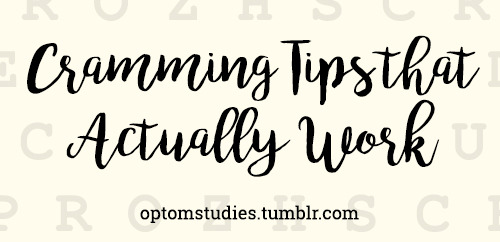
Hey, so usually I’m very early and prepared for exams but this time for my Christmas exams, I’ve left EVERYTHING until 5 days before the exams! There’s too much to memorise in such a short amount of time! And I have a busy schedule so I can’t do revision 24/7! Any tips?
Pssst! The best tip for cramming is actually to not cram!! 🙃 But if you have to, here are some tips that actually work! 💲💲
Throw out all distractions, and palm off as many commitments as possible to others.
You’re a student at the end of the day. That’s your job, so do it properly. Before you are a retail worker, a movie buddy, a chauffeur for your siblings, or a studyblr blog manager, you are a student.
You don’t have a lot of time left, so give your phone to your parents or someone you trust to keep it away from you. Add StayFocusd to Chrome and turn on the nuclear option so that you only use the internet for study purposes. Get your friends/siblings or parents to do chores for you and make it up to them after the exams.
Know what’s likely to be tested.
This is much more important than anything else. There are going to be important concepts that you learn that are not going to be tested. No point studying for something that won’t be asked about. Pro tip: think about the homework exercises that you got and what they tested.
Just as a general rule, the most basic things such as definitions (skim read these), as well as the most complex cases, will not comprise the majority of the test. For complex cases, you can’t just skim read them, but you should get an idea of the skills/processes that you need to solve them.
For example, when learning about different diseases, the point is to make you a practitioner which can deal with the most dangerous (life-threatening, sight-threatening no matter how rare), most common (>1% prevalence) and uncommon (0.1-1%) diseases, which will comprise the majority of the points. The rare conditions (<0.1%) will either be right near the end of the test or be bonus point questions. The other thing is that if even if they do ask about rare conditions, it’s going to be a distinguishing sign, or it is related to a more common condition. And the question they most likely ask is “what further tests would you do to aid diagnosis?” which relates to basic concepts of disease diagnosis.
Also, just keep in mind that there are university exams which literally ask you minutae in the multiple choice questions. For example disease exams have asked things like “What percentage of people with diabetes mellitus have diabetic retinopathy?” and have four really similar options for percentages. You just have to had studied that, and odds are you won’t be able to remember a hundred different stats prior to your exam if you’re cramming (just don’t cram, you literally can’t cram for uni exams).
Divide your time appropriately (not necessarily equally) between understanding the course content and doing practice exercises/ examination style questions.
If you just launch into doing practice questions without having some sort of knowledge, you’ll get stuck on a lot of questions, get the questions wrong, and need to refer back to your textbooks and do a lot of searching and flipping through pages, which wastes your time.
So start off by going through the concepts first so that you know enough not to constantly look back. You should try to allocate as much time as possible actually answering questions though, because there’s no better way to prepare for an exam than to do exam-style questions.
Step-by-step: Count the number of chapters/lectures you need to cover, and divide it equally amongst about 40% of the time that you have left, so that you know how long to spend revising each lecture.
Focus on one exam at a time, and study the hardest concepts which require a lot of reasoning and understanding in the morning.
Studying in the morning allows you to be at your freshest and most switched on. If you’re strapped for time, focus on being able to explain things. Explain it to your parents, siblings, or gudetama plushie. Explaining is an exercise in summarising which tests your ability to understand causative elements and how they relate to different consequences.
Ask questions to yourself whilst studying.
This tests your knowledge, and is a good way for you to check what you know and what you don’t know. When you’re cramming, you likely don’t have someone to help you at such short notice, so you need to be that person for yourself. Plus, it primes you to think like an examiner/exam paper - you’ll start realising what’s likely to be tested, which helps you narrow down what to study, and it helps you for the next part: practice questions.
For example: geometry - to give a simple example, yes, you need to know what an angle bisector is, but are they likely in the exam to ask you to “Write the definition of an angle bisector.”? No. They’re going to get you to actually get your tools and bisect one. 90% of the time, you don’t need to know a definition in maths - it’s only the foundation knowledge so that you can answer actual questions.
For example: medical/health science. Yes, you need to know differentials for diseases, but are they going to ask you to “List the differentials for ___”? No, that’s too simple, they’re obviously going to get you to eliminate a differential by considering the similarities and differences in signs and symptoms. So it’s much better to spend your time learning which conditions have similarities and what the distinguishing signs are e.g. Fuch’s Uveitis has stellate KP that is scattered all around the corneal endothelium - all other forms of uveitis pretty much have the KP scattered in Arlt’s triangle because of the convection currents in the anterior chamber.
Chunk information together.
This is a much more effective way of summarising all the information you need to study. Think of your memory as a mind map or a expandable list or like a set of folders in My Documents. You should try and sort things into topics and sub-topics that you can simply expand by just thinking of the title of that sub-topic.
Step-by-Step: Cover up the information you’ve written under the sub-topics, and then try to recall it all just by looking at the title (acts as a trigger word).
Topic/Chapter/Lecture 1
“Sub-Topic 1″ #Try and recall all the info below by reading this#
#cover up this information#
#cover up this information#
#cover up this information#
“Sub-Topic 2″
“Sub-Topic 3″
Not only does this 1) actually test your knowledge through a smaller form of the blank paper method (previously written about here) but it also 2) allows you to chunk and remember massive amounts of information just by seeing the trigger word (the title of the topic).
It helps to make a mental note of how many points were written for each section.
Tie everything together with a mnemonic.
Of course, the issue now is that if you don’t have the trigger word then you won’t remember that chunk of information - so you need to counter that by using a mnemonic to remember the top level of topics and link everything together in your mind.
Using this method is what I’ve always done to remember large chunks of information. That way, when key words turn up in the question, you will be able to remember all the information under that category and hence answer the question flawlessly.
Practice by doing one exercise for each type of question.
Particularly useful for studying for maths/science. You just need to know how to solve one question in the set to know how to solve the rest. Pick the hardest question at the end of the question set because it will involve the most skills to complete.
Study in a different order. Study your concepts in reverse.
Make sure you change things up, because you don’t want your brain to only be able to answer a question if all the topics lead on to the next. The questions in the exam are going to be covering all your topics in all different orders. Jump from Chapter 3 to Chapter 5 to Chapter 2, and do the same for the sub-topics.
Secondly, study concepts in reverse because this is how exams test who really knows their stuff. For example: instead of learning that Disease A has Symptoms 1, 2, and 3, force your brain to think “What Disease has Symptoms 1, 2, and 3?” - because this is exactly the type of question that comes up in exams.
Drink water, take breaks, sleep.
Still needs to be done to maximise your productivity. Not taking breaks will make you less efficient and less effective. You also said that you have other commitments so try to get that stuff done in the short breaks between your study sessions so that you can be productive. Take a 5-10 minute break every hour and get out of your seat and stretch. Sleep is essential for our brains to consolidate information and retain information.
Best of luck!!
MY STUDY TIPS
My study tips directory (web only) for the full list (over 80+ original posts/guides!)
Keep reading
4K notes
·
View notes
Text
TIME MANAGEMENT TIPS
hello everyone i have decided to do a blog post as part of my study break and I am going to talk about some time management tips that might help you for the coming terms when we all go back to school.
my tips have kind of come from personal experience and what I have found to be really helpful, but obviously these may necessarily not work for you :)
TIP #1 WAKE UP EARLY
I don’t think I can stress this tip enough as this has seriously helped me with my time management. My sleeping pattern is fairly regular and I wake up at around 6:30-7am every morning, and last year when studying for my GCSEs, whilst I would get up early, I wouldn’t start work until 2 or 3pm and then do all of my work at night. Over the last month and a half - 2 months, I have been starting work as early as I can and I have found that I am getting so much more done than what I would with my old habit. I kinda trained myself/forced myself to do work in the morning and I have stuck with this really well.
I also find that waking up early gives me a fresh mind and so I can get started with a clear head and it really helps keep me positive and have a good attitude towards my work which makes me much more productive.
Perhaps you could try going to bed an hour earlier so you can wake up earlier and get more things done. Gradually start going to bed earlier and you will find you can sleep better and wake up with a clear mind.
TIP #2 SCHEDULE SCHEDULE SCHEDULE
This, like tip #1, is also like majorly important. I have really started getting used to schedules and I find them such a massive help. If I am in a rush or havent got as much to do (like literally one or two things), I make a to-do list but this is still so helpful for time management. I used to have an attitude where I did what I felt like and when I felt like it and still somehow managed to get everything done - but with a schedule I am just so much more organised and I feel like I have a goal and it motivates me to get everything done. Keeping a schedule makes it easier to develop a routine and keep everything flowing.
You can have different types of schedules - you might make a daily schedule and write down all the times you need to do things; weekly reviews are also helpful for managing time and give you a nice overview of what you should prepare for. Monthly reviews can be nice to have a look at appointments, exams or commitments you might have. It doesn’t have to be a schedule that has times on it, but even something as simple as a to-do list is better than having a mental list of what you need to do.
Schedules can come in many forms. I write mine down on some paper and keep it next to me on my desk, and if I am going out I will make a copy of it in my calendar or take a photo of it and save it as my lock screen so I can be constantly reminded of what it is I am supposed to do. You can also have them in the form of a printable that you have found, in a bullet journal, in a planner etc. It doesn’t matter what medium your schedule is on - as long as you make one, you will find you are so much more organised!
TIP #3 PRIORITISE
Following on from tip #2, is prioritising. It actually sounds pretty obvious, but don’t tell me you don’t put off doing that essay that your teacher set you because you don’t want to do it, even though it is really important that you get it done! it is important that when you plan your schedule, you make time for that essay that you really need to get done so that you can get it out of the way and so that you don’t hand it in late, or spend until 2am in the morning doing it on the day that it is due in. Make sure that when you do work, you are doing the things that you have to do.
Doing this also ensures that you are spending an appropriate time on that subject and by prioritising, you can also spend more time on assignments or subject that need some improvement, instead of always doing the subject that you enjoy. I find when I prioritise my work I can get an even coverage of all of my subjects, but also, when I have to, I can prioritise a subject over another so I can focus on improvement.
Some people recommend that you do the things that you don’t want to do, or prioritise your hardest subjects first. This means that 1) you can get them out of the way and 2) you can tackle it with a fresh mind and makes it slightly easier. I do this quite a lot and find that I am relieved when I have got it done, but also I feel a lot more positive for the rest of the day because I only have things left that are slightly easier or that I enjoy more!
TIP #4 FIND A PRODUCTIVE STUDY ENVIRONMENT WHEN YOU WORK
Some people at first might not agree with this coming under time management, but I certainly think it belongs here. Finding a productive study environment not only coincides with your schedule but is also beneficial for you. It means that you can get as much done as you can and you can be more productive, but also being more productive enables you to keep within your schedule.
If I am not in a productive environment and I have several things scheduled, I overrun on the times I have set myself and then have to work for longer when I could be doing other things. For example, I might have an essay to write, some flashcards to make and some reading to do before I go to work; but if I am not in a productive study environment, such as my desk or a library, then I find it really hard to get everything done and then I come out of my schedule and it means I have to finish everything after work; by which time I am too tired to even think about finishing what I had intended to do.
Find an environment that works for you and that you feel comfortable in, that also makes you feel super motivated and productive. This way you can do as much work as you can and not come out of your schedule. These places could be in your local library, at the beach sat on a bench, in your bedroom at your desk, at your grandparents kitchen table - wherever! just find an environment that works for you so you can effectively work.
TIP#5 FIND THAT BALANCE
As a student, you are going to have lots of other commitments besides your courses. Whilst a full-time student has to spend roughly 30 hours a week studying according to leading statistics from universities, it is almost like having a full time job; and like with anything, you need down-time.
It is so important that you find the balance between study and other commitments because you don’t want to overwhelm yourself with work. Work out how much you could spend doing each task that is realistic to you and make sure you schedule in some free time. Find out what works for you regarding time spent on these commitments and you can find that balance where you have managed your time for studying and other commitments effectively, and then you have the chance to have that time to yourself, whether that be watching shows on netflix or playing on some games, or even doing some baking or having a bath.
Finding that balance is really important when you are scheduling in what to do, because not only does it ensure you can keep a track of everything, but you are also looking after yourself.
TIP #6 BE REALISTIC
I kind of mentioned this in the last tip but being realistic is something I always forget about and should probably be more on top of when I am planning my schedule. My problem is that I underestimate how long things take me and so sometimes I find myself not finishing everything I should.
When you are making your to-do list or your schedule, you should be realistic. Remember that you can’t do everything all at once and that you need some spare time to look after yourself and do the things that you want to do. This is another ‘finding your balance’ in the sense that you are finding the balance between being super productive and going at your own pace.
Also factor in your mood as well, if you are feeling down or if you are ill, don’t give yourself 20 things to complete by the end of the day - maybe just do one or two small tasks just to keep that productivity flowing. Sometimes, if I am super anxious, I end up creating the most horrendous to-do list because I feel like I have to get everything done, but in reality, I can’t!
You know yourself best and you know what a realistic schedule or to-do list looks like to you; be honest with yourself and sensible with your lists to ensure that you don’t burn yourself out!
TIP #7 POSTPONE UNNECESSARY ACTIVITIES UNTIL ALL OF YOUR WORK IS DONE
Unnecessary activities includes everything that will make you procrastinate. I find it really helpful to have my phone in another room as if I see a text come through I immediately want to answer it. If you feel like you could be tempted to go on social media on your laptop, you can block or bar websites on chrome or internet explorer or other search engines so that you don’t get distracted.
Unnecessary activities also include going downstairs and speaking to my parents or my brother when I am supposed to be studying - if I have a test or something coming up that is quite significant I always just let them know that I will be working and that if they can to try and keep quiet and it always helps.
After you have finished your school work, these activities become more enjoyable because you have been waiting to do them for a while as you were studying. It also gives you some down-time to look forward to after you have done!
I find this perhaps the most difficult thing about time management and even if I have put away all distractions, I still find that I will talk to myself or doodle to give me something to do whilst I am studying! However, this is more preferable than procrastinating on my phone!
TIP #8 BE FLEXIBLE
Not all commitments are going to go to plan and sometimes you have to make last minute decisions or cancellations and not everything can be scheduled. It is important that whilst you have scheduled what you are doing and when, that you are able to be flexible with your time in case things pop up.
It is important that if these things do occur, that you can get back to what you should have been doing after and that you do maintain what is on your daily, weekly or monthly schedule.
I hope these tips helped in terms of keeping your time managed and if you have any questions about any of these tips, feel free to ask me about it.
have a lovely day x
485 notes
·
View notes


